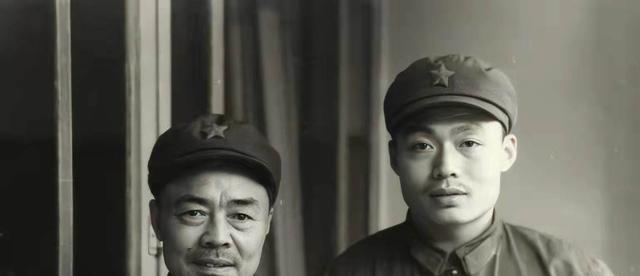The 3rd Column of the Northeast Field Army was called the "Whirlwind Force", thanks to the fact that the military and political leaders of the column were very in place in military command and political thinking.

The commander of the three columns was Han Xianchu, who set one battlefield record after another in the northeast battlefield and was called "Han Bold". In the troops, the ability of the commander is directly reflected in the style of the entire unit.
Luo Shunchu, the political commissar of the Third Column, was a generalist who served as a staff officer for a long time in the Red Army and the War of Resistance Against Japanese Aggression, and was very proficient in marching and fighting, platooning and arranging troops, and was also very good at political work.
In 1947, Luo Shunchu carried out the education method of complaining about the grievance class in the three columns, and most of the commanders and fighters of the army were peasants, and they suffered great hatred before joining the army. Through the grievances of some warriors, everyone is inspired to recall their own sufferings. Let the soldiers clearly know why they are fighting wars, for whom they are revolutionary, raise the ideological consciousness of commanders and fighters, and achieve good results. After Luo Ronghuan learned about it, he organized cadres to go down to understand the experience and widely popularize it.
The political and ideological work of the three columns is ahead of other fraternal units.
In 1948, after the liaoshen campaign, the troops were ready to enter the customs operation, and many commanders and fighters from the northeast did not want to leave the northeast. Some people believe that the transportation outside Guanxi is convenient and the conditions are superior, and that trains, automobiles, and various heavy industries are in the northeast, while Guanxi is poor. To this end, the troops have begun to recuperate.
Luo Shunchu, the political commissar of the Third Column, set an example for the troops, and during the Battle of Western Liaoning, he was shocked by a bomb and injured his eardrums, and recuperated in Shenyang. When they learned that the troops had entered the customs operation, some commanders and fighters were afraid of being far away from home, and their thinking fluctuated greatly. He asked the deputy commander to tell the troops that he would return to the unit soon, and that he must enter the pass, and that he would climb into the pass if he could not walk or climb.
Luo Shunchu was slightly injured and could not get out of the line of fire, and the spirit of adhering to the revolution to the end was set by Luo Ronghuan as an example. To this end, Luo Ronghuan asked the troops to overcome the idea that they did not want to advance, and they should persist in their poor health, let alone allow the transfer of work.
After the founding of New China, Luo Shunchu was transferred to the Navy as chief of staff, and later transferred to the Navy as deputy commander, responsible for naval equipment. With his efforts, the Navy's combat effectiveness has increased by a large margin.
After 1959, he was influenced by the Lushan Conference to leave the Navy, and after studying at the Political Science Institute, he was arranged by Luo Ronghuan to be the director of the 10th Research Institute of the Ministry of National Defense. At that time, Luo Ronghuan was well aware of Luo Shunchu's ability and personality, and he withstood the pressure.
From then on, Luo Shunchu was responsible for weapons and equipment until 1975, when he was transferred to the first-line military region.